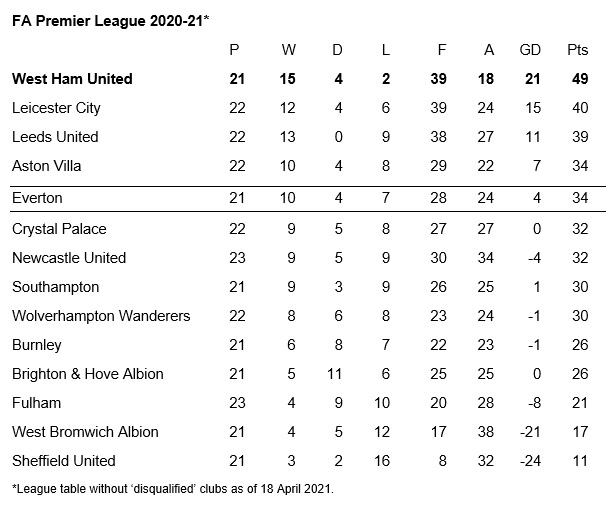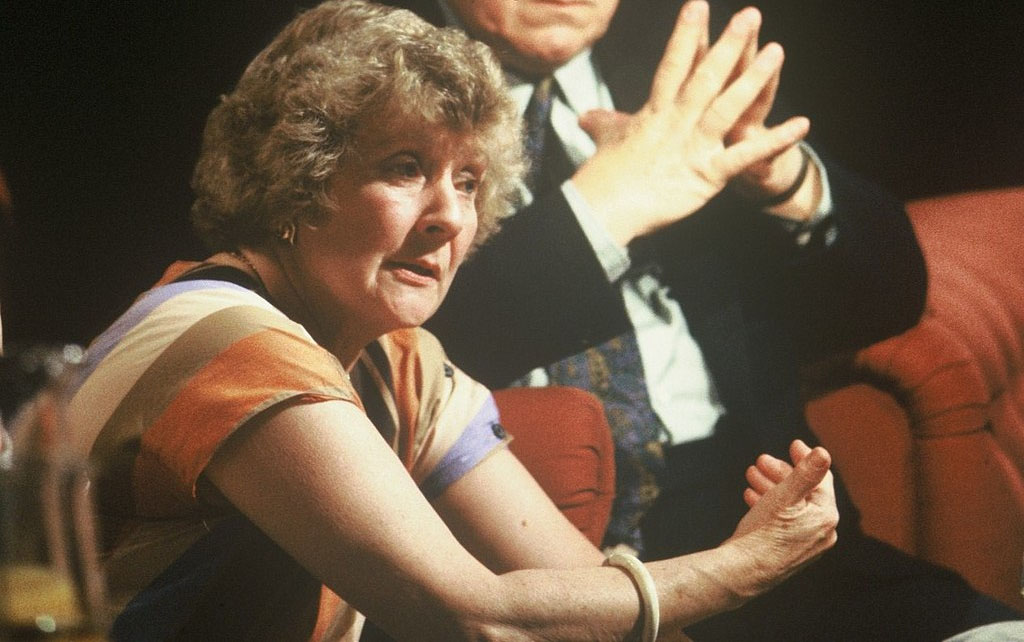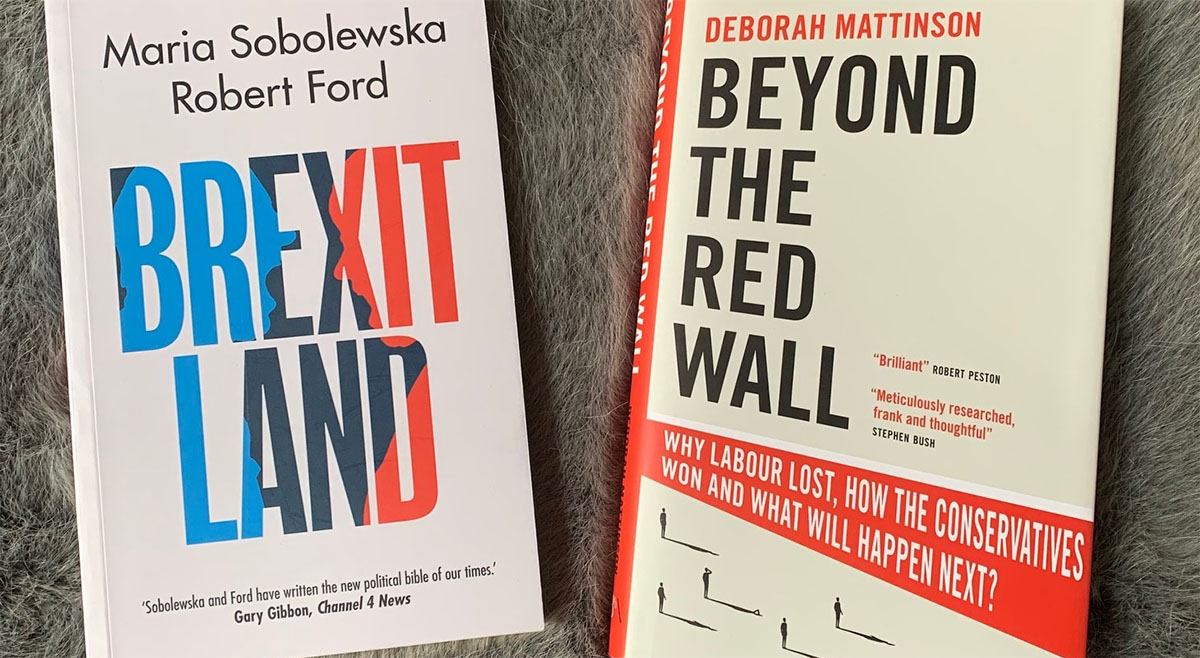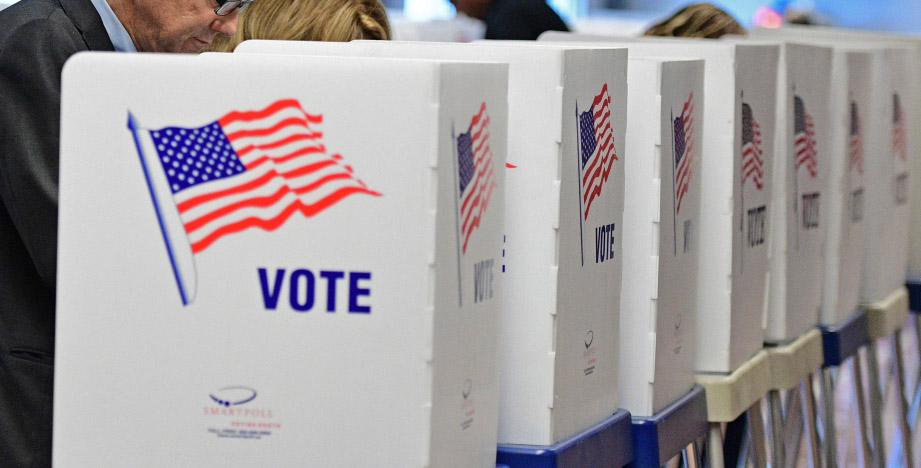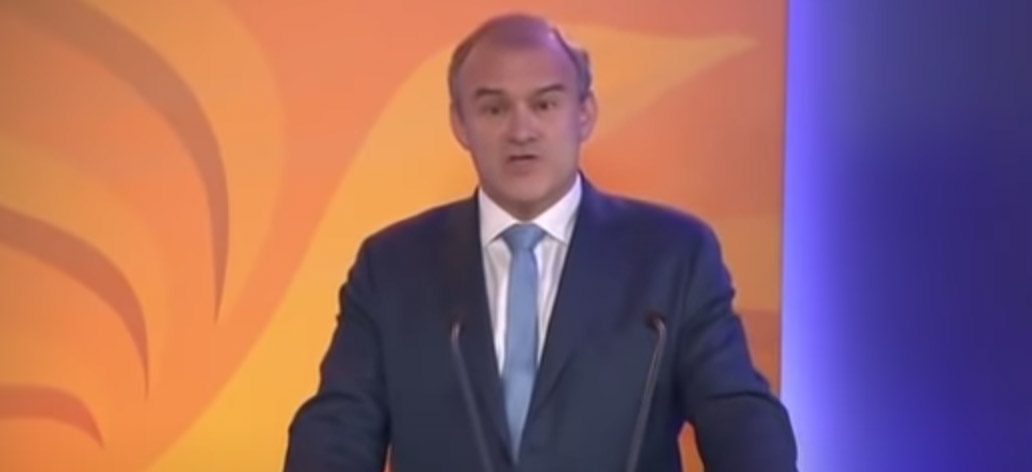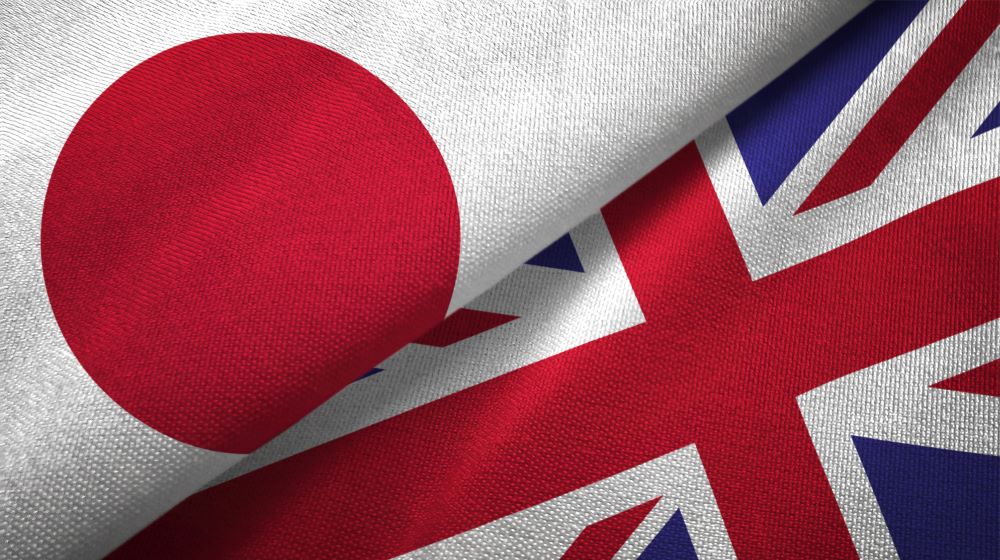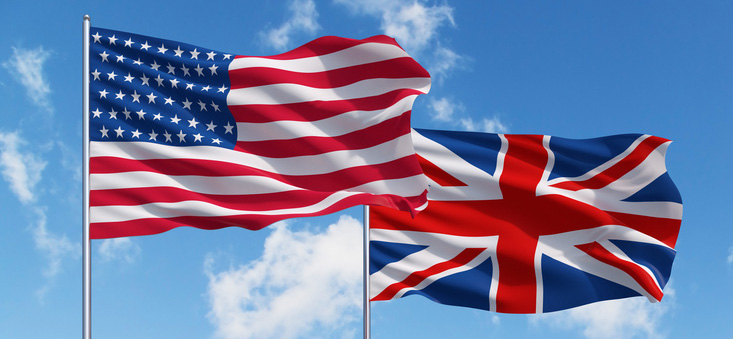A look at the Liberal Democrats, their history and their positioning right now and John concludes that they are not going to be much help in the years ahead.
Ed Davey seems to have some clue that the Liberal Democrats are in a bit of a mess. What he intends to do about any of this is less clear and whether or not he sees himself as having been part of the problem, even less so.
If we are to believe Mr Davey’s conference leader’s speech then the strategy that will pull the Liberal Democrats out of their electoral trough will be based upon ‘speaking for carers’, talking about ‘universal basic income’, not going back to the way things were before Covid-19 and familiar stuff about ‘green jobs’.
But, say’s Mr Davey, to do any of that his party has to change – though, apart from ‘needing more black MPs’ what kind of change was entirely vague. It was all rather light touch stuff – not attempting to speak truth to the powerless, not spelling out what change involves ‘not being’ and strangely devoid of actually leading.
The Liberal Democrats are a notoriously sensitive bunch. It may be that Mr Davey doesn’t feel he has the mandate or the power to actually lead his party right now, when in fact he now enjoys his greatest leverage. A newly elected leader uses their mandate or loses it – and Davey got two third of the vote, how big a mandate does he think he needs? A new leader needs to show a sense of purpose, a direction, and agenda. For Mr Davey that agenda seemed to be about ‘being nice’ – he didn’t need to spell out exactly what his political strategy might be but he does need to seem to have one.
The broad grins and warm words about the wonderful things the Liberal Democrats “did in government” (he mentioned two things) reveal part of that failure to understand or at least accept the failure of the LibDems political strategy post 2005. What the wider centre-left needs to understand is that these defeats contributed to the wider defeat of liberal democracy represented by Brexit and the further dismantling of Labour’s electoral coalition that followed.
Talk to Liberal Democrats about their party and its positioning and you will get a string of replies that will differ, some will see themselves as primarily anti-Conservative, some the opposite. Opinion will be shaped by location and opportunity – and may then differ at local government level from ward to ward. The driver has been the UK’s first past the post electoral system.
Liberal Electoral Politics Post 1945
From 1945 to the present the Liberals, the SDP Liberal Alliance and their Liberal Democrats successors have represented 105 constituencies at Westminster. 10 of those were held pre 1945 by Liberal or National Liberal MPs. 69 were gained from the Conservative and Unionist Party and 26 from Labour. When the Liberals won seats from the Conservatives, they have held onto them for on average of 20.4 years but when they have won seats from Labour they have been lost in an average of 4.9 years (1)
It took seventeen years for the post-war Liberal Party, which had clung on to a few distant outposts, to show signs of life. A mini revival was sparked by a by-election gain at Orpington in 1962. Under Jo Grimond, a plausible man with the luxury of the most distant constituency with a tiny electorate and a personality vote, Liberal representation doubled from six to twelve by the 1966 election. During this revival they gained nine seats from the Conservatives and one from Labour while Labour gained four at their expense.
Edward Heath’s victory in 1970 knocked the Liberals, now led by Jeremy Thorpe, back to six seats to six seats. If not off, the revival was postponed. During the seventies the domination of the two big post-war parties was under threat. The two General Elections in 1974 were more of less scoreless draws with Labour and the Tories each below 40%. Not just the Liberals, but the SNP and Plaid Cymru made gains, their campaigns boosted by by-election successes that reminded of their existence.
Without the peculiar institution that is the UK Parliamentary by-election neither Liberal revivals nor their development as a third party with a periodic influence would have been much more difficult. First past the post by-elections offered the opportunity for the Liberals to be an acceptable tactical alternative for voters looking to defeat their main enemy – especially so when four out of five Westminster seats are ‘safe’ at general elections. The Liberals offered a chance to send messages/give bloody noses/make a change/get a ‘different’ MP without actually voting for the opposite opinion or having to think about affecting government. 10 of 29 by-election gains were lost at the subsequent general election, only 13 were retained at two or more general elections, contributing to the core of growing Liberal representation (2). Because the strategy depended on the ability to face both ways it could not however contribute building a core vote.
Nonetheless, Liberal successes at general elections continued to be more at the expense of the Conservatives than Labour. During the 74-79 Labour governments the Liberals, now led by David Steel and with a series of media-familiar if oddball MPs (3), largely held on at the 1979 election, losing only two seats in the South West including the disgraced Mr Thorpe his neighbour, supporter and Steel’s main rival, John Pardoe.
Thorpe’s refusal to prop up Ted Heath and Steel’s pact with Jim Callaghan set a direction of travel toward an essentially anti-Conservative positioning. This trend, hastened, by both the Conservative move toward the monetarist right and Labour’s descent into civil war presented an opportunity that SDP defections confirmed (4). Through the next decade or so the SDP-Liberal Alliance and then the Liberal Democrats continued a strategic anti-Conservative positioning coupled with the familiar by-election strategy of opportunist tactical vote harvesting, ‘Con/Lab can never win here’ and dubious graphs. However, the objective, explicitly as the Alliance, was not to ally with Labour but to replace Labour – something that another point on their 1983 general election share might have seen them pull off. Instead, Labour pulled back from the brink under Neil Kinnock and the Liberals consumed the SDP, nonetheless remaining largely in an anti-Tory space, firmly cemented by Paddy Ashdown’s ascendancy.
Lib-Dem de-facto anti-Conservative positioning at parliamentary level had not followed through to other levels of UK politics. Ironically, the factors that drove their shift under David Steel also saw the extinction of the Conservatives as an effective force in local government in the northern conurbations. By the ‘80s the claim that either Labour or Conservative “could never win here” under first-past-the-post had a forty-year evidence base. Accordingly, the ‘franchise’ for opposing Labour under first past the post moved from Tory to the LibDems in parts of Northern England. Nonetheless, 1997 brought Ashdown’s approach to fruition with gains almost exclusively from the Tories taking them to 46 seats, consolidated to 52 in 2001. More importantly, the LibDems under Ashdown helped erode the legitimacy of the Conservatives and consigned them to years of irrelevance. Labour and the LibDems together accounted for 60% and 59% of the vote in 1997 and 2001 which helped deliver and cement important constitutional and social change. The failure to move to fair votes at Westminster meant allowed the Conservatives to reverse much of the legacy of those years and worse.
Like so much else the pivot came in 2003, through it was a pivot that would eventually prove fatal. The post-9/11 Iraq conflict saw Charles Kennedy seeking political space to the left of Labour. It was not difficult to predict that much of Labour’s ‘Guardian demographic’ would seek another home and so it. While there was little space in the political centre, positioning on this and a few others to Labour’s left provided a comfortable home to students and lifestyle voters which took Labour ‘university’ seats in 2005 or caused their loss to the Conservatives by unwinding the anti-Tory tactical vote. The dipping of Labour fortunes also allowed the LibDem ‘franchise’ to build its local government strength, taking councils including Newcastle and Sheffield. The Liberal Democrats had reached their high-water mark.
The changes taking place in the Liberal Democrats, with the election of Nick Clegg, positioning himself toward a ‘free market’, ‘free trade’, increasingly pro-individualist position, may have been lost on the wider electorate to whom LibDem internal affairs are something of a mystery. After 35 years of dominant anti-Conservative positioning and defending seats where, overwhelmingly, the main challenger was Conservative, the Liberal Democrat voter was essentially left of centre. Having held 57 out of 62 seats Nick Clegg took the Liberal Democrats into coalition with David Cameron’s toned-down Conservatives and, at a stroke, lost for the two-thirds of the vote they had built through three decades of anti-tory positioning.
Davey's on the road again - but to where?
The Liberal Democrats now hold eleven seats – one fewer than they won in 1945 and they are the fourth party behind the SNP. All of the seats they initially gained at by-elections have been lost. In their former concentrations of strength – rural Wales and the South West, they hold only a single seat (Bath) and only one of their seats, Caithness, Sutherland & Easter Ross, was formerly Labour. They have no Westminster representation in five regions/nations and a single seat in a further three.
What should be most disturbing, however, is how few of their former seats are in play at the next general election. Even though the 2019 election saw the LibDems move into second place in 53 more seats it took them to only 91 overall, 80 behind the Conservatives, nine being Labour and two trailing the SNP. Few of these second places represent a serious challenge in 2024. Taking even the most optimistic view, which acknowledges the LibDem ability to produce larger swings than Labour-Tory marginals tend to see, gives them a change in 13 former seats and a handful of possibles beyond those (Conservative with the exception of Sheffield Hallam (Labour) and East Dunbartonshire (SNP)). However, of the eleven current LibDem MPs only two can realistically say they can relax and regard themselves as safe – past experience suggests one or two will fail to get back. Even with a substantial breeze behind them it is hard to see the Liberal Democrats with more than 25 MPs at a 2024. Anything beyond that requires storm force optimism.
Ed Davey seems to understand that this is not going away any time soon, but he doesn’t seem to know what to do about it, or if he does, he doesn’t want to talk about it (5). This is both strange and deeply unhelpful. It signals that the Liberal Democrats have learned nothing from their experiences. It would be easy to kid ourselves that none of this matters but unfortunately it does. Depriving the Conservatives of a majority in the next Parliament would be considerably easier were the LibDems in contention in more Conservative seats.
Those who argue for formal anti-Conservative arrangements at parliamentary elections miss the point. Political parties do not own their voters. They cannot be directed to vote for another party – if they wish to vote tactically, they will make that decision for themselves. A strong liberal current in political debate, however, helps move the mood of the country against the Conservatives who have been the dominant UK party for the past two centuries and have been valuable allies in times of important social reform that contributed to a political majority for change in the UK. Nick Clegg and his allies squandered the Liberal Democrat vote while failing to gain the substantial reform to Westminster elections. Fair votes should have been their red line instead Clegg settled for a limited referendum in which PR wasn’t on offer and thus change was easily seen off, probably for a generation or more.
While the Liberal Democrats struggle to decide on or even seriously consider their positioning they will remain on the fringes and any vote they accumulate will remain fragile. Overall, that will only make the UK less socially liberal and Conservative Party more secure in government.
JH 3.10.2020
Notes
1. There are a number of complicating factors here. Boundary redistribution makes it very difficult to compare Westminster Constituencies over the 75 years this article considers. Some of the constituencies that have had Liberal or Lib/Dem MPs have disappeared altogether, others have change substantially, others in only minor ways or now have different names. The numbers are based on author’s research of public sources (below).
2. By-elections include gains at four contested by the SDP on behalf of the SDP-Liberal Alliance in which three seats were won from the Conservatives and one from Labour. Mike Hancock lost his seat in Portsmouth South in 1987 but won it again in 1997 as a LibDem. I concluded that to include the by elections at Richmond Park, which had been won in first in 1997 and subsequently lost to the Conservatives and at Winchester which was the result of an election petition by the Conservatives should not be included as their circumstances were exceptional. The same is true of the 2019 by-election at Brecon & Radnorshire, which had been a former LibDem seat.
3. Jeremy Thorpe, Clement Freud, David Penhaligon, Cyril Smith …
4. Defections from either of the two main Westminster parties are not included in this piece unless the seat was subsequently held as a Liberal Democrat at a subsequent election. The defections from Labour to the SDP in 1981 are not included for similar reasons. Only three of these seats were retained by defecting MPs – Robert Maclennan won went on to hold his Caithness seat as both SDP and Liberal Democrat and Ian Wigglesworth in Thornaby/Stockton South held also on in 1983. David Owen held on in Plymouth Devonport until 1990. These MPs were part of a different political narrative to the post-war Liberal Party.
5. Some have suggested that from Labour’s point of view Layla Moran may have been a better option. Her campaign declaration that if she was elected she would ‘go after Labour’ suggests that she doesn’t get it either. Also, from personal observation, I do not believe that the electorate would have regarded Ms Moran as either a plausible or personable leader.
Sources
UK Parliament Briefing Paper CPB 8749, 28 Jan 2020
Wikipedia
Electoral Calculus
The Guardian
BBC
Times Guides to the House of Commons


